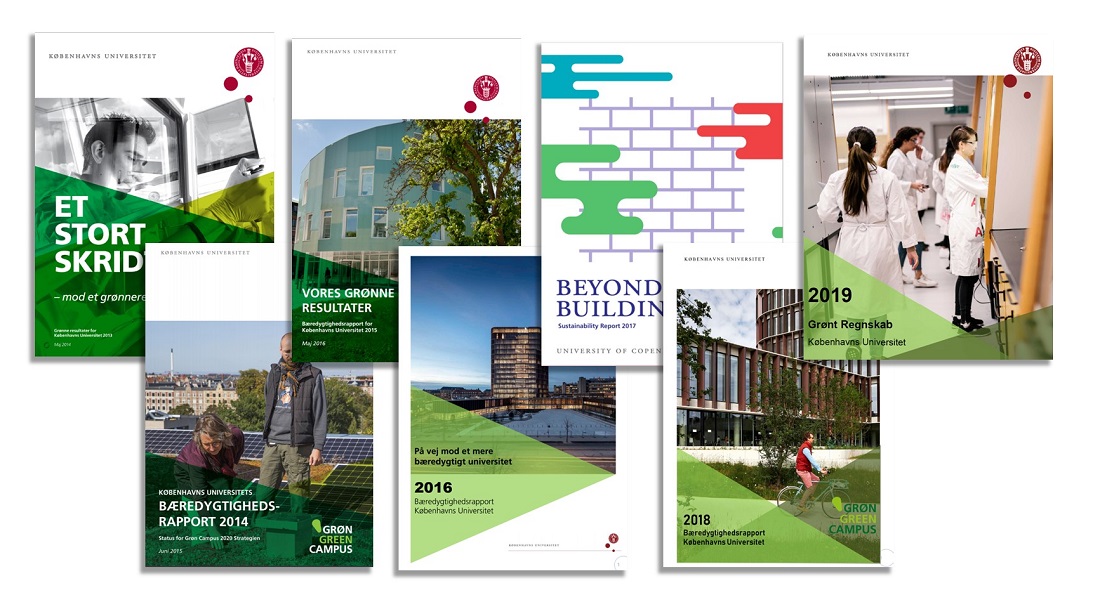UCPH's approach

The transition of our society and consumption to sustainability requires massive change. This also accounts for University of Copenhagen, whose 9.500 employees and 37.500 students have a considerable climate and resource footprint.
UCPH's researchers and students develop knowledge and solution in relation to the challenges we are facing. The university has a responsibility to put this knowledge to action. As a result UCPH has worked with sustainable transition of the institution since 2008 and will concurrently strengthen the effort.
In 2020, The University of Copenhagen has developed and approved six main themes for the sustainability work pointing towards 2030, building on contributions from employees and students.
The University of Copenhagen will be realised following four general principles:

UCPH will be ambitious in our striving for a transition to a more sustainable university. Nationally and globally, we do not currently know the answers to what a sustainable world looks like, and we only know some proposals concerning how to achieve this transformation.
Solutions, initiatives and actions will be developed in the coming years, and we must accept that we do not know all of them today. But UCPH will be ambitious and develop new solutions. We must actively use the knowledge developed by our own researchers and the outside world.

UCPH will use data and knowledge to prioritise initiatives and actions where they can make the greatest difference. ‘If you can’t measure it, you can’t manage it.’ But we must also recognise that knowledge is constantly developed, and we are becoming increasingly more knowledgeable about climate, resources and sustainability issues.
Precise data is often not possible. UCPH will continuously evaluate and revise data, calculation methods and approaches in line with our acquisition of more knowledge and will launch new initiatives and actions on this basis.
Our impact on climate and resources is connected with production, use and disposal. We will take responsibility for our climate and environmental impact in a holistic perspective.

Involvement and participation form an integral part of UCPH’s organisational culture. Many decisions, which together are crucial to a sustainable transition, are made locally and on a daily basis.
It is important for the individual person’s motivation and understanding of sustainability to encounter sustainable initiatives and actions in everyday life. UCPH focuses on creating frameworks and organization that make employees’ participation as meaningful as possible and in areas where there are good local opportunities for action that can be supported.

UCPH's core ressources has to be put into play
UCPH conducts extensive research and has great expertise in a number of areas of relevance in the transition and development of initiatives and actions, and are incorporated in the work with setting new goals for UCPH.
Converting inspiring ideas into specific implementation of new sustainable everyday solutions at UCPH is often a resource-demanding and time-consuming process. The time perspective for students is often projects and assignments of a fairly short-term duration. Conversely, research projects may operate with long time spans.
The time perspective is only one element in the process. Realisability, resources and organisation are other factors that have to interact if a campus as a living lab is to make sense.
It is thus necessary to establish a framework for the work with campus as a living lab which ensure that the collaboration generates value for both the core business and in the transition of UCPH to a more sustainable institution.
UCPH contributes to strengthening practice-oriented research and education through collaboration on specific solutions. Work must be done to develop initiatives and actions aimed at strengthening the effect of this and how it can make a positive contribution to, for example, the future graduates’ profiles and the range of study programmes and further and continuing education courses offered at UCPH.
It is crucial that the specific initiatives and actions are combined holistically with UCPH’s activities aimed at strengthening sustainability in education and research, where this makes sense.
